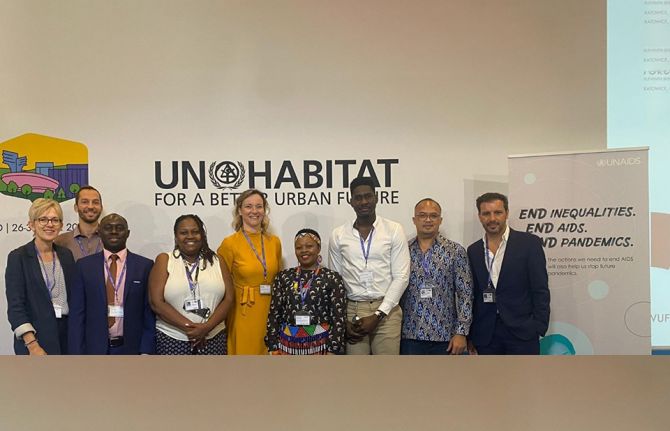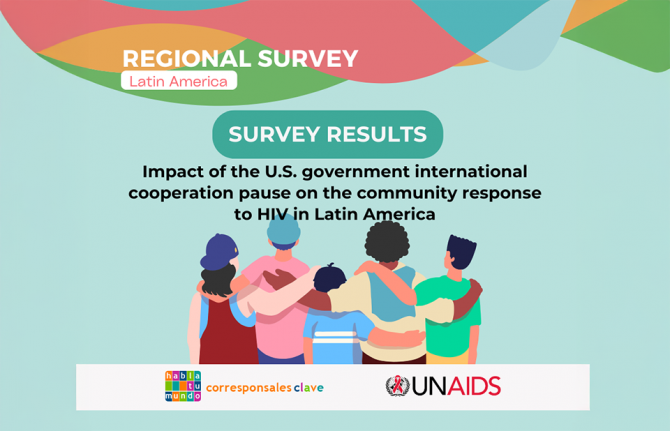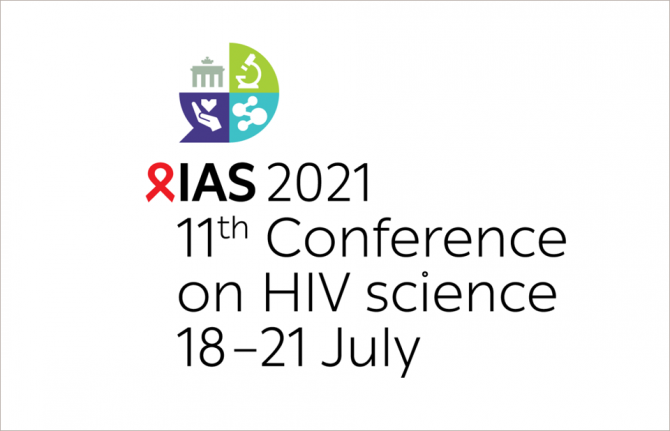
Feature Story
New report explores implications of tests to estimate timing of HIV infection for criminal prosecutions
04 August 2011
04 August 2011 04 August 2011
The UK charity National AIDS Trust (NAT) launched a report on 4 August 2011, entitled Estimating the likelihood of recent HIV infection – implications for criminal prosecution, which explores the validity and meaning of the Recent Infection Testing Algorithm HIV tests, or RITA tests, within the context of criminal prosecutions of HIV transmission.
The report, primarily aimed at professionals working in the criminal justice system and HIV specialists who may be called on as expert witnesses in criminal HIV transmission cases, calls for caution about the potential use of RITA results to determine timing of HIV infection.
About RITA and its potential use in criminal law context
RITA tests estimate the likelihood that a person found to be HIV-positive has been infected recently, usually within the previous six months. To date, the United Kingdom is the only country reported to routinely return RITA results to newly diagnosed patients.
As criminal law in the UK allows for the prosecution of people for transmitting HIV to another person, the report underlines the importance that RITA tests and their limitations be fully understood and not misused in criminal proceedings. The report underlines that while there have been no reported instances of use of RITA results in courts to attempt to prove timing of HIV transmission and consequently the identity of the person who transmitted HIV, this may happen in the near future.
No test can conclusively state when an individual acquired HIV
“No scientific test is able to conclusively state when an individual acquired HIV,” said Dr Cate Hankins, Chief Scientific Adviser to UNAIDS. “It is important to be cautious, follow clear protocol, and understand the limitations of RITA results when delivering them to patients or using them within a criminal law context.”
It is important to be cautious, follow clear protocol, and understand the limitations of RITA results when delivering them to patients or using them within a criminal law context
Dr Cate Hankins, Chief Scientific Adviser to UNAIDS
According to the report, proving HIV transmission in the context of criminal law cases requires the use of a combination of scientific evidence, medical records and testimony to establish the facts, timing and direction of HIV transmission.
“Scientific advances such as RITA testing are extremely welcome when estimating the recency of HIV infection on a population level, especially as late diagnosis is a huge issue,” said Ms Deborah Jack, Chief Executive of National AIDS Trust. “However, it is crucial that the limitations of RITA tests are fully understood and are not used out of context, for example during criminal proceedings.”
As RITA tests are designed to work at the population level (based on averages) rather than at the individual level, taking into account significant rates of false RITA test results in individuals, the report draws the conclusion that RITA tests are not reliable as evidence of recent HIV infection for individuals in the context of criminal proceedings.
Better understanding of HIV science in the context of criminal law
The NAT report comes weeks ahead of an expert meeting on the scientific, medical, legal and human rights aspects of the criminalization of HIV transmission and exposure organized by UNAIDS in Geneva from 31 August to 2 September 2011.
The meeting will bring together leading scientists and medical experts on HIV together with legal and human rights experts. Participants will examine relevant scientific and legal evidence and concepts relating, among others, to harm, risk, intent and proof, and their conceptualization/application in the context of criminalization of HIV exposure and transmission.
The meeting is part of UNAIDS’ work towards halving the number of countries with punitive laws and practices around HIV transmission, sex work, drug use, or homosexuality that block effective AIDS responses by 2015.
External links
Related

Feature Story
Guatemala holds second National HIV Testing Week Campaign
03 August 2011
03 August 2011 03 August 2011
Rene Mauricio Valdes, UN Resident Coordinator in Guatemala, at the inaugural event of the "HIV Testing Campaign" for UN staff members.
Credit: UNAIDS Guatemala
An estimated 100 000 people took part in the Ministry of Health and Social Welfare of Guatemala’s National HIV Testing Week Campaign, now in its second year. In order to fulfill the right to health for all citizens, the Ministry, through the National AIDS Program, has established 295 HIV testing sites at national hospitals and health centers around the country.
Twenty-seven years after the first reported case of HIV in Guatemala, access to testing remains limited. According to data from the National Epidemiology Center two out of three people living with HIV were unaware of their status. Early detection of HIV infection is crucial as it enables timely access to treatment and, with it, a better quality of life for people living with HIV.
Under the slogan "No matter who you are, get tested for HIV," an estimated 100 000 people took an HIV test the last week of July. Supported by Red Cross Guatemala, civil society organizations, and universities, the initiative promoted inclusiveness and an environment free of stigma and discrimination.
To meet the country's commitment to universal access to prevention, treatment, care and support to HIV, the Government institutionalized the annual National HIV Testing Week to offer all citizens – including key populations at higher risk – access to HIV tests over a one week period.
This is an opportunity to stop HIV in Guatemala and get closer to UNAIDS vision of zero new infections, zero AIDS deaths and zero stigma and discrimination
Enrique Zelaya, UNAIDS Country Coordinator for Guatemala and Mexico
"This is an opportunity to stop HIV in Guatemala and get closer to UNAIDS’ vision of zero new infections, zero AIDS deaths and zero stigma and discrimination,” said Enrique Zelaya, UNAIDS Country Coordinator for Guatemala and Mexico.
Innovative proposal in the UN
The UN system in Guatemala also took part in the weeklong campaign. Under the guidance of the UN system-wide workplace programme on HIV, UN Cares, with both human and material resources from the Red Cross and the Guatemala National AIDS Program, HIV testing was made available at different offices of the UN System in Guatemala.
"It is a privilege, an opportunity and a right to have this national initiative and to take it closer to our workplaces," said the UN Resident Coordinator in Guatemala, Rene Mauricio Valdes.
The HIV epidemic in Guatemala
An estimated 65 701 people are living with HIV in Guatemala. Each year, there are an estimated 7 557 new infections, the equivalent of 21 people newly infected each day. The country’s epidemic is concentrated among key populations at higher risk, such as transgender people, people with tuberculosis, men who have sex with men, female sex workers, youth at risk, and prisoners.
External links
External links
- UNAIDS Guatemala (in Spanish)

Feature Story
UNAIDS and Global Fund support countries in west and central Africa to optimise resources for HIV
02 August 2011
02 August 2011 02 August 2011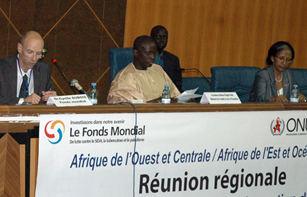
L to R: Cyril Dubois, Global Fund’s chief of Division, west and central Africa, Minister of Health and Prevention of Senegal, Mr Modou Diagne Fada, UNAIDS Regional Director for West and Central Africa, Dr Meskerem Grunitzky-Bekele.
UNAIDS and the Global Fund have convened a meeting in Dakar, Senegal, to respond to the increasing need for risk management and accountability related to HIV funding. The event brought together more than 300 participants from countries in West and Central Africa who discussed financial, procurement and supply management risks as well as questions around accountability and governance.
The main objective was to provide organizations which are implementing HIV programmes with a better understanding of risk management to be able to secure funding from the Global Fund.
The meeting was opened by the Senegalese Minister of Health and Prevention, Modou Diagne Fada who announced that the Government of Senegal will gradually increase the proportion of its national budget which is spent on health to 15% by 2015.
Sound risk management is key for the AIDS response since it is an important element for the optimization of resources
UNAIDS Regional Director for West and Central Africa, Dr Meskerem Grunitzky-Bekele
Speaking at the plenary, UNAIDS Regional Director for West and Central Africa, Meskerem Grunitzky-Bekele, highlighted that “sound risk management is key for the AIDS response and crucial to optimizing resources for HIV.”
Participants identified several risk factors such as weak institutional architecture of the national AIDS response; limited availability of qualified personnel and poor financial and accounting management standards. Another risk factor identified relates to investment choices and the need to identify where to invest for a maximum effect and return was highlighted.
“A good understanding of accountability and the importance of proactive and transparent risk management during grant implementation constitute the two essential pillars of sound management that will prevent disruptions from happening,” said Cyril Dubois, Global Fund’s chief of Division, West and Central Africa. “These steps are complementary in order to ensure that the financing provided by donors is used most effectively. Such an approach creates an environment that will ensure that the grants provided to countries fully benefit the populations affected by the diseases,” he added.
Corrective actions were defined together with an action plan to put in place mechanisms and systems for preventive risk management and strengthen accountability at country level. According to the participants, the key elements to overcoming the situation are building countries leadership; providing comprehensive technical support in key areas such financial management, and creating spaces to access capacity development initiatives tailored to countries needs.
UNAIDS provided technical support for risk management through different phases of grants implementation. Over the past year, Guinea, Togo, Niger, Chad, and Central African Republic have received support in adequate budget definition and follow up, financial review and management, or evaluation of risk management-related technical assistance.
Related
 Impact of the pause of US foreign assistance in Côte d'Ivoire
Impact of the pause of US foreign assistance in Côte d'Ivoire

19 February 2025

Feature Story
Country ownership and capacity development central in moving forward the response to AIDS
29 July 2011
29 July 2011 29 July 2011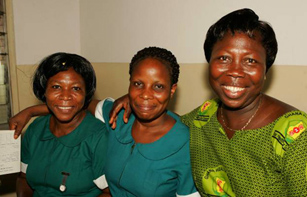
Credit: UNAIDS/P.Virot
In the past decade, increased commitment and funding has enabled countries to boost their HIV responses. However, many of the gains remain fragile as countries face challenges to take charge of their own AIDS responses.
Following the High Level Meeting on AIDS where world leaders agreed on bold targets, UNAIDS convened a workshop in Dar es Salaam, Tanzania to strengthen investments in capacity development of six sub-Saharan African countries—Benin, Ethiopia, Ghana, Malawi, Nigeria and Swaziland.
The focus of the workshop was on increasing country ownership in their AIDS response. The workshop also encouraged countries to share experiences and indentify bottlenecks. According to participants, some of the key challenges include limitations in programme implementation, poor governance systems, lack of leadership and human resources and uneven financial and management capacities
“The area of capacity development is a learning area for Ethiopia. Through this workshop we have learnt from the obstacles and challenges faced by countries and how to avoid those pitfalls,” said Alemu Arno Ararso, Director of the Multi-sectoral Response Coordination at the Federal HIV/AIDS Prevention and Control Office (FHAPCO), Ethiopia. “We know that investing in capacity development will help our country achieve its AIDS objectives and expected results,” Mr Ararso added.
We know that investing in capacity development will help our country achieve its AIDS objectives and expected results
Director of the Multi-sectoral Response Coordination at the Federal HIV/AIDS Prevention and Control Office, Ethiopia, Mr Alemu Arno Ararso
The six countries have received grants from the EC to develop and implement technical support plans, addressing issues such as governance systems, leadership development, human resources and financial management capacities.
Ghana, Nigeria and Swaziland have integrated their technical support and capacity development plans into their national AIDS strategic frameworks and are starting implementation. Ghana plans to utilize the EC grant to bring together development partners to discuss the creation of a pooled fund for the provision of technical support. In addition, Ghana is working with academia to establish training programmes in health systems strengthening and monitoring and evaluation, with a view to building long-term and sustainable country capacities.
At the end of the workshop participants emphasized the importance of national partners with organizations such as universities. Special mention was given to the fact that, despite countries’ efforts to scale-up in-country capacities, migration of skilled professionals has reduced the impact.
“As efforts evolve from an emergency to a more sustained response, country capacities now need to be developed in a range of core areas,” said UNAIDS Team Leader in the Aid Effectiveness and Country Capacities Division, Angela Trenton Mbonde. “Country ownership and capacity development should play a more central role in moving forward the AIDS response,” she added.
The country inputs and experiences shared throughout the workshop will inform the revision of the UNAIDS Capacity Development Guidance Note intended to promote a common understanding of capacity development in the context of technical support planning and national HIV programmes.
Related

Feature Story
Young people key to reversing the global AIDS epidemic and leading the response
27 July 2011
27 July 2011 27 July 2011
Young leaders and government policy-makers discussing commitments made regarding young people and the AIDS response. UN HQ, New York. 26 July 2011.
Credit: UNFPA
A new report highlights that global commitments will be achieved only if the unique needs of young women and men are acknowledged and their human rights fulfilled, respected, and protected.
The Global Inter-Agency Task Team on HIV and Young People launched the synthesis report entitled Securing the Future Today containing strategic information about HIV and young people. The report was launched at an event organized by UNAIDS on the sidelines of the United Nations High-level Meeting on Youth which took place in New York from 25-26 July under the theme “Youth: Dialogue and mutual understanding”.
The side event, convened in collaboration with UNFPA, ILO, Global Youth Coalition on HV/AIDS, Population Council and Catholic Relief Services, brought together young leaders and government policy-makers to discuss commitments made regarding young people and the AIDS response. Participants looked for solutions to reach a shared vision of “Zero new HIV infections, Zero discrimination and Zero AIDS-related deaths” among young people.
In order to reduce new HIV infections among young people, achieve the broader equity goals set out in the MDGs and begin to reverse the epidemic, HIV prevention and treatment efforts must be tailored to the specific needs of young people.
Recent epidemiology data from UNAIDS indicates that young people are leading the HIV prevention revolution by taking action to protect themselves from HIV. Young people’s sexual behaviors are changing and HIV prevalence among young people is dropping in 15 of the 21 countries most affected by HIV. However, in 2009, young people accounted for 41% of all new HIV infections among adults with 3 000 young people becoming newly infected with HIV each day. Also in 2009, 4.9 million young women and men were living with HIV worldwide.
The report highlights that young people are a key resource to reverse the global AIDS epidemic and lead the response in decades to come. But it stresses that the legal and policy barriers that prevent young people from accessing HIV services must be addressed, and young people should be engaged more effectively in the response.
In that sense, the side-event provided a platform for young people to have a direct dialogue with national Governments in order to encourage the scale up of HIV prevention and treatment services for young people as well as the active involvement and leadership of young people, including those living with HIV, in the AIDS response at all levels.
According to the new report, to effectively advance the response among young people, there is a need to increase investments. However, it also cautions that simply directing more resources will not increase HIV testing and uptake of services among young people. Instead, empowering young people and particularly young women to exercise their rights to sexual and reproductive health, improve programmes for young people and repeal national laws and policies that restrict access to HIV services for young people is required to protect future generations from HIV.
Publications
Related
 “Who will protect our young people?”
“Who will protect our young people?”

02 June 2025

Feature Story
Achieving sexual and reproductive health and rights for women and girls through the HIV response
19 July 2011
19 July 2011 19 July 2011
On the periphery of the IAS 2011 conference taking place in Rome from 17-20 July 2011, UNAIDS in collaboration with the Global Coalition on Women and AIDS (GCWA), ATHENA, Salamander Trust, WECARe+ and Network Persone Seropositive convened a town hall dialogue to discuss how the HIV response facilitates the achievement of sexual and reproductive health and rights for all women, including women living with HIV, at every stage of their lives.
For women living with HIV stigma and discrimination and gender-based violence acutely affect their access to comprehensive services and human rights. Within health services, they often face a lack of choice with regard to family planning; disapproval from service providers with regard to meeting sexuality and fertility desires; and violation of their sexual and reproductive rights in the form of coerced or forced abortion or sterilization. Participants agreed that advancing the health and rights of women in all their diversity is fundamental to the success of the HIV response, just as the HIV response is a critical avenue for achieving sexual and reproductive health and rights for women.
The event was also used as a platform to launch a report Community Innovation: Achieving sexual and reproductive health and rights for women and girls through the HIV response. Compiled by UNAIDS and the ATHENA Network, it presents case studies pioneering community undertakings to advance women’s sexual and reproductive health and rights through the HIV response and vice-versa, from different community perspectives. This report recognizes that women face unique challenges to access and fulfil their sexual and reproductive health and rights, including gender-based violence, and therefore have less access to HIV prevention, care and support services.
Women and girls at the community level, and at every level, must be supported to demand quality services that meet their needs and those of their community
UNAIDS Deputy Executive Director, Programme, Dr Paul De Lay.
“Women and girls at every level and throughout different stages of their lives must be supported to demand quality services that meet their needs and those of their community,” said UNAIDS Deputy Executive Director, Programme, Dr Paul De Lay.
Learning from these community case studies is an opportunity to enhance the AIDS response, in light of the Millennium Development Goals and the 2011 Political Declaration on HIV/AIDS. The case studies indicate that for responses to be effective they must include the empowerment and inclusion of women in all their diversity, dedicate attention to sexual and reproductive health, including improvements in maternal and child health, and address the socio-cultural practices underlying gender inequality.
UNAIDS Getting to zero: strategy 2011-2015 also places gender equality and human rights as one of three core pillars. This report is part of that commitment to ensuring that women and girls’ rights are met through the HIV response and it was undertaken in the context of the UNAIDS Agenda for accelerated country action for women, girls, gender equality and HIV.
“UNAIDS continues to be a strong advocate for women’s health and rights, as well as to strongly stand against stigma and discrimination amongst all marginalized groups. We will continue to do so until we have achieved the vision of zero discrimination,” said Dr De Lay.
External links

Feature Story
6th IAS Conference on HIV Pathogenesis, Treatment and Prevention opens in Rome
18 July 2011
18 July 2011 18 July 2011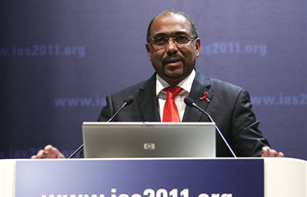
UNAIDS Executive Director Michel Sidibé delivering his keynote speech at the opening session of the IAS 2011.
“We are at a scientific watershed in the global AIDS response,” said IAS 2011 International Chair and International AIDS Society President Elly Katabira. “We have witnessed two years of significant biomedical advances, the likes of which we have not seen since the antiretroviral breakthroughs of the mid 1990s. The excitement around these advances in research—whether they are the CAPRISA 004 vaginal gel, the HPTN 052 study on treatment as prevention or the encouraging signs on PrEP and vaccines—is very much driving the debates and discussions that we are going to see in Rome over the next few days.”
It is against this backdrop that the 6th IAS Conference on HIV Pathogenesis, Treatment and Prevention (IAS 2011) opened in Rome on 17 July. More than 5000 AIDS researchers, scientists, clinicians, community leaders and policy experts have gathered to examine the latest developments in HIV-related research and to explore how scientific advances can inform the global response to AIDS.
We have to remember that history will judge us not by our scientific breakthroughs, but how we apply them
UNAIDS Executive Director Michel Sidibé
The IAS Conference will also focus on finding ways to translate research into practice, particularly in low- and middle-income countries. In his opening session keynote speech, UNAIDS Executive Director Michel Sidibé described the current gaps in access to HIV treatment within and between countries and key populations as “an affront to humanity,” but also reminded the audience that these gaps “can and must be closed by innovations in developing, pricing and delivering treatments and commodities for HIV, TB, malaria, reproductive health and other health issues”. “We have to remember that history will judge us not by our scientific breakthroughs, but how we apply them,” added Mr Sidibé.
Echoing this call at the opening session, IAS 2011 Local Co-Chair and Research Director at the Istituto Superiore di Sanità Stefano Vella insisted on the need to evenly share the recent advances in biomedical research between the global North and South. “We need to ensure that the advances we are making in research such as the now proven concept of antiretroviral treatment as a means of HIV prevention is translated into action for people in developing countries.”
Mr Vella also used the occasion to call on the Italian government to re-commit to the Global Fund to Fight AIDS, Tuberculosis and Malaria. “Advances in science need to be matched by advances in resourcing. I call on the Italian government to recommit itself as a donor nation to the Global Fund to Fight AIDS, Tuberculosis and Malaria,” said Mr Vella.
IAS 2011 will reveal promising new data across all four scientific tracks – particularly in the areas of HIV treatment as prevention, HIV cure efforts, new drugs and new antiretroviral combinations, and the scale up of effective prevention and treatment interventions in resource-limited settings.
Speeches
Speeches
External links
Related
 An HIV vaccine: who needs it?
An HIV vaccine: who needs it?

21 July 2021
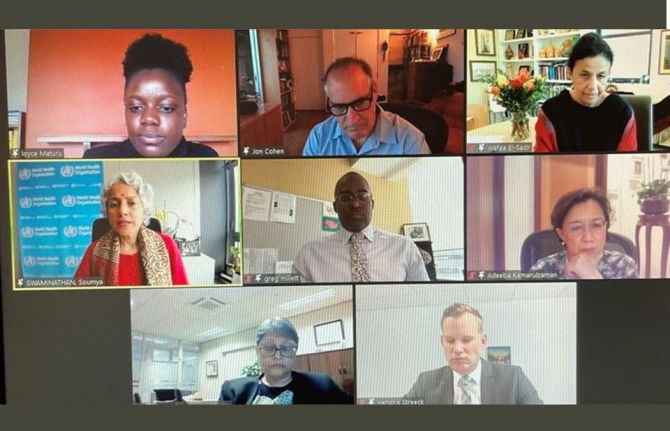 Science, HIV and COVID-19—where are we headed?
Science, HIV and COVID-19—where are we headed?

08 June 2021

Feature Story
The Medicines Patent Pool announces negotiations with two additional pharmaceutical companies for patents on HIV medicines
18 July 2011
18 July 2011 18 July 2011
Credit: UNAIDS
The Medicines Patent Pool has begun negotiations with Boehringer-Ingelheim and Bristol-Myers Squibb for patents on HIV medicines essential to treating people living with HIV in the developing world. The announcement was made today during the IAS 2011 conference. The Pool was already in negotiation with five other patent holders and concluded its first licensing agreement with a leading pharmaceutical company, Gilead Sciences, a week ago.
UNAIDS Executive Director Michel Sidibé welcomed the news because “sharing innovation and patents will drive down the price of medicines and bring antiretroviral treatment to millions more people.”
“It is morally wrong that nine million are waiting for treatment and that 5 000 people are dying every day of AIDS-related illnesses,” Mr Sidibé added.
“Of all pharmaceutical companies with HIV medicines patents, only three are currently not in negotiation with the Pool. We call on Johnson & Johnson, Merck, and Abbott to follow the lead of their colleagues and enter into negotiations with us,” said Ellen ‘t Hoen, Executive Director of the Medicines Patent Pool.
The Medicines Patent Pool and Gilead Sciences agreement is for five products for the treatment of HIV and Hepatitis B: the medicines tenofovir, emtricitabine, cobicistat, and elvitegravir, and a combination of these medicines in a single pill known as the “Quad.”
Sharing innovation and patents will drive down the price of medicines and bring antiretroviral treatment to millions more people
UNAIDS Executive Director Michel Sidibé
Public health licensing of products in clinical development is rare and is an important advance in a field where many potentially valuable medicines are still in the developmental phase. This licence will allow for generic versions of new products to enter the market shortly after the products are available in rich countries.
"UNITAID has worked for four years to develop the Medicines Patent Pool concept. Today we are proud to see that it is becoming a tangible reality," said Philippe Douste-Blazy, chair of the UNITAID Executive Board. "I salute these important steps by Gilead and other pharmaceutical companies and urge other pharmaceutical companies to place their patents at the service of global public health."
The Medicines Patent Pool was established by UNITAID in July 2010 to work towards bringing down the prices of HIV drugs and encouraging the development of new formulations, such as medicines for children, through voluntary licensing of critical intellectual property.
External links
Related

Feature Story
International Women's Summit explores ways to make the world safer for women
13 July 2011
13 July 2011 13 July 2011
L to R: Hendrica Okondo, World YWCA Regional Programme Director for Africa and the Middle East; Babatunde Osotimehin, Executive Director, UNFPA; Mathilda Parau, YWCA of Papua New Guinea; Lissette Herrera, President, YWCA of Peru; Joanna Kerr, Action Aid International; Jan Beagle UNAIDS Deputy Executive Director, Management and External Relations; Gill Greer, Director General, IPPF.
Credit: YWCA
The World YWCA (Young Women’s Christian Association) hosted its fourth International Women's Summit (IWS) in Zurich, Switzerland from 12-13 July 2011. The event brought together more than 1 000 participants from over 100 countries to discuss issues facing women and girls today ranging from gender inequality, young women’s sexual and reproductive health and rights and HIV to the social and economic dimensions of violence against women.
"The Summit is an opportunity to lift our voices and demand women’s protection from violence. It is also an opportunity for possible remedies for survivors of violence and to affirm the leadership of women living with HIV. Our goal is to trigger action, achieve life changing results and make a real difference," said Nyaradzayi Gumbonzvanda, General Secretary of the World YWCA.
Under the theme Women creating a safe world, participants defined equitable, safe and inclusive spaces and programmes for women. According to them, safe space is about the personal, economic and political security of women and girls, their right to live free from violence, to make choices about where to live and work, to move freely and participate in all facets of democracy. It is also to have full access to sexual and reproductive health services, including universal access to HIV prevention, treatment, care and support, free of stigma and discrimination.
Organized around plenary sessions, a wide range of speakers from around the world particpated, including H.E. Thokozani Khupe, Vice-Prime Minister of Zimbabwe, Dr Michelle Bachelet, Executive Director of UN Women, Dr Babatunde Osotimehin, Executive Director of UNFPA, and Ms Mary Robinson, President of the Mary Robinson Foundation on Climate Justice. They challenged participants and enriched the debate with powerful ideas around the critical issues of sexual and reproductive health and rights, HIV, violence against women, peace and justice and human rights.
Speaking at the plenary on securing sexual and reproductive rights for all women, UNAIDS Deputy Executive Director, Management and External Relations, Ms Jan Beagle, highlighted that “for most women health is as much about social justice, dignity and equality of access to income, education and food, as it is about hospitals and medicines.”
For UNAIDS, it is clear that gender equality and human rights, including sexual and reproductive rights, are non-negotiable elements to ensure effective HIV and health responses
UNAIDS Deputy Executive Director, Management and External Relations, Ms Jan Beagle
“For UNAIDS, it is clear that gender equality and human rights, including sexual and reproductive rights, are non-negotiable elements to ensure effective HIV and health responses,” added Ms Beagle.
During the session, participants noted that a lack of contraception and unsafe sex are crucial risk factors for death and disability in women of reproductive age. The sexual and reproductive health and rights (SRHR) of women living with HIV are often ignored and one fifth to a half of girls and young women report that their first sexual encounter was forced.
The key elements to overcoming this situation, according to the participants, are providing comprehensive HIV prevention; building the leadership of women, especially young women, in advocacy and provision of services; creating and sustaining safe and inclusive spaces and access to full and comprehensive information.
The need to link community services and programmes with policy-making and accountability was also highlighted during the summit. Women and girls must be empowered to meaningfully engage in building safer environments, whilst the primary responsibility for provision of services, safety and security lies with States and their public government institutions. Civil society need to engage and monitor states to ensure they fulfil their promises and commitments under international law as suggested by participants.
“National HIV strategies need to be tailored to the needs and rights of women and girls and include specific programmes and budgets that address gender inequalities, in order to translate the commitment and political will into adequate resource investment,” said Ms Beagle. “It is unacceptable that less than half (46%) of all countries allocate resources for the specific needs of women and girls in their national response to HIV,” she added. Ms Beagle also emphasized the need to harness the leadership capacity of young women in developing and implementing policies and programmes to advance the sexual and reproductive health and rights of women and girls.
External links
External links

Press Statement
UNAIDS welcomes first voluntary license to the Medicines Patent Pool by a pharmaceutical company
12 July 2011 12 July 2011Medicines Patent Pool sign historic agreement with Gilead Sciences to increase access to HIV medicines in developing countries
GENEVA, 12 July 2011—The Joint United Nations Programme on HIV/AIDS (UNAIDS) strongly welcomes the new license agreement between the Medicines Patent Pool and the pharmaceutical company Gilead Sciences to increase access to antiretroviral therapy in developing countries. This is the first time a pharmaceutical company has signed an agreement with the Medicines Patent Pool and marks a turning point for future private sector collaboration in sharing innovation to advance the response to HIV.
Under the agreement, Gilead will share intellectual property on a range of medicines to treat HIV. The agreement will allow for the production of the HIV medicines tenofovir, emtricitabine, cobicistat, and elvitegravir as well as a combination of these products in a single pill known as the “Quad.” Cobicistat, elvitegravir and the Quad are products still in clinical development. Companies interested in producing generic versions of the medicines for developing countries will be able to approach the Patent Pool to negotiate licensing terms.
“This agreement between the Medicines Patent Pool and Gilead signals a new era in the response to HIV with private and public sectors working hand in hand for the best interests of public health,” said Michel Sidibé, Executive Director of UNAIDS. “I hope today’s announcement will inspire other pharmaceutical companies to follow suit to share intellectual property and innovation to make new technological advances in HIV treatment available sooner to the people that need them most.”
The agreement is particularly significant and represents a major step forward as Tenofovir is one of the first-line medicines for HIV recommended for use by the World Health Organization as per guidelines released in 2010. Under the new agreement Tenofovir will also be licensed for use to treat Hepatitis B, a common and serious co-infection of HIV.
The inclusion of products still under development is a rare and important advance and will allow for generic versions of new medicines to rapidly enter the market, lessening the inequality between developed and developing countries in accessing new medicines.
In low- and middle-income countries, UNAIDS estimates that around 6.6 million people are currently accessing HIV treatment––however a further 9 million are still in need. At the recent United Nations High Level Meeting on AIDS, UN Member States unanimously adopted a declaration which set bold new targets which included increasing access to antiretroviral therapy to 15 million people by 2015.
The Medicines Patent Pool is a creative new approach which was established in 2010 with the support of UNITAID to increase access to newer antiretroviral medicines by creating a
pool of patents and intelligence on antiretroviral production donated by medicine producers. It is currently in negotiations with six other patent holders.
Press centre
Download the printable version (PDF)



